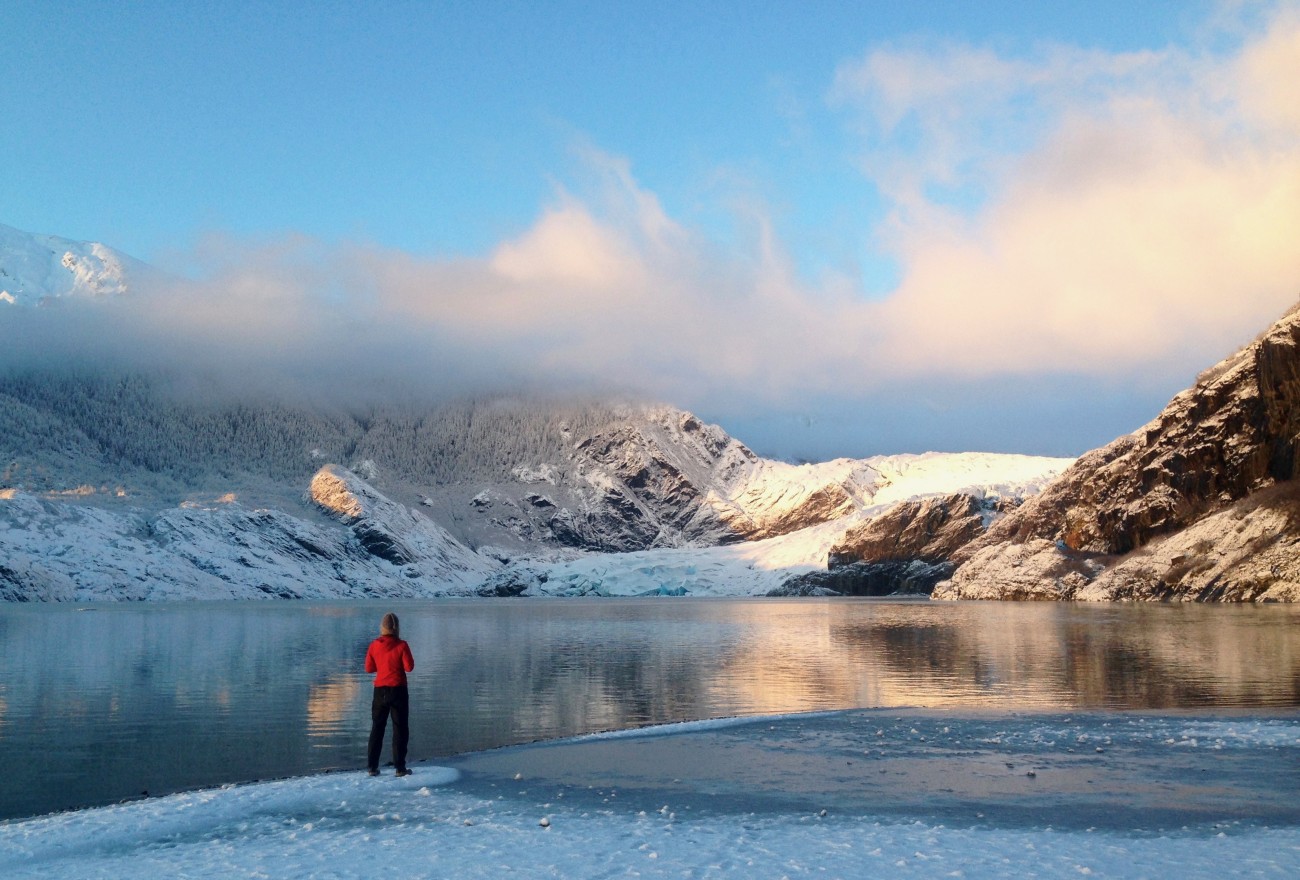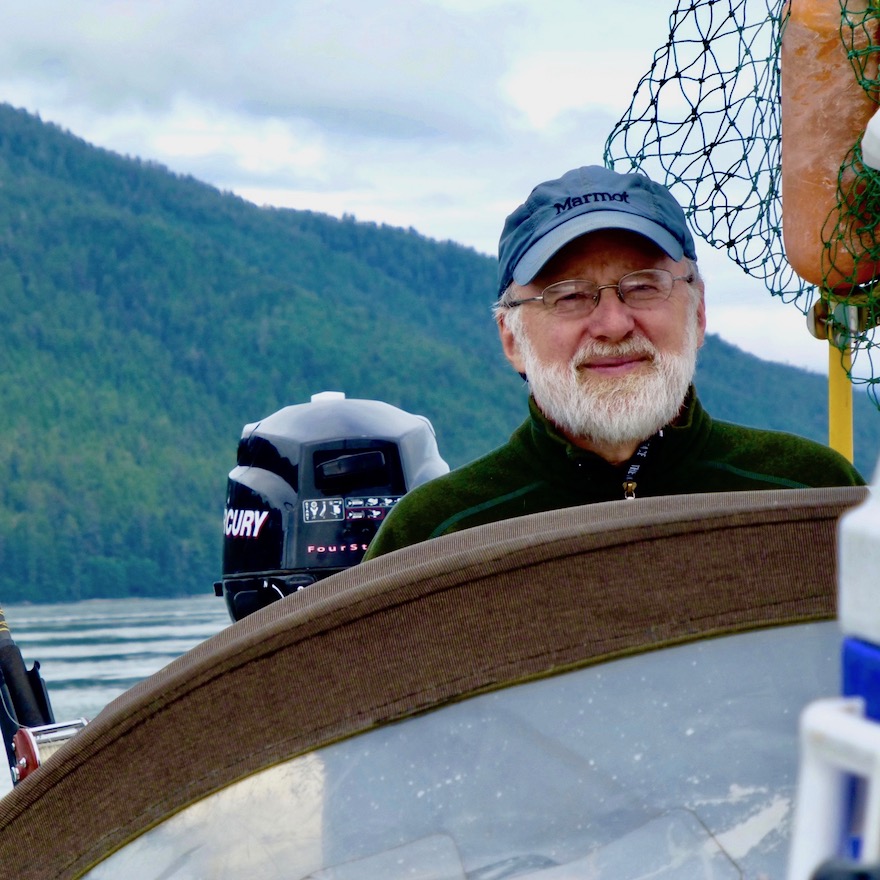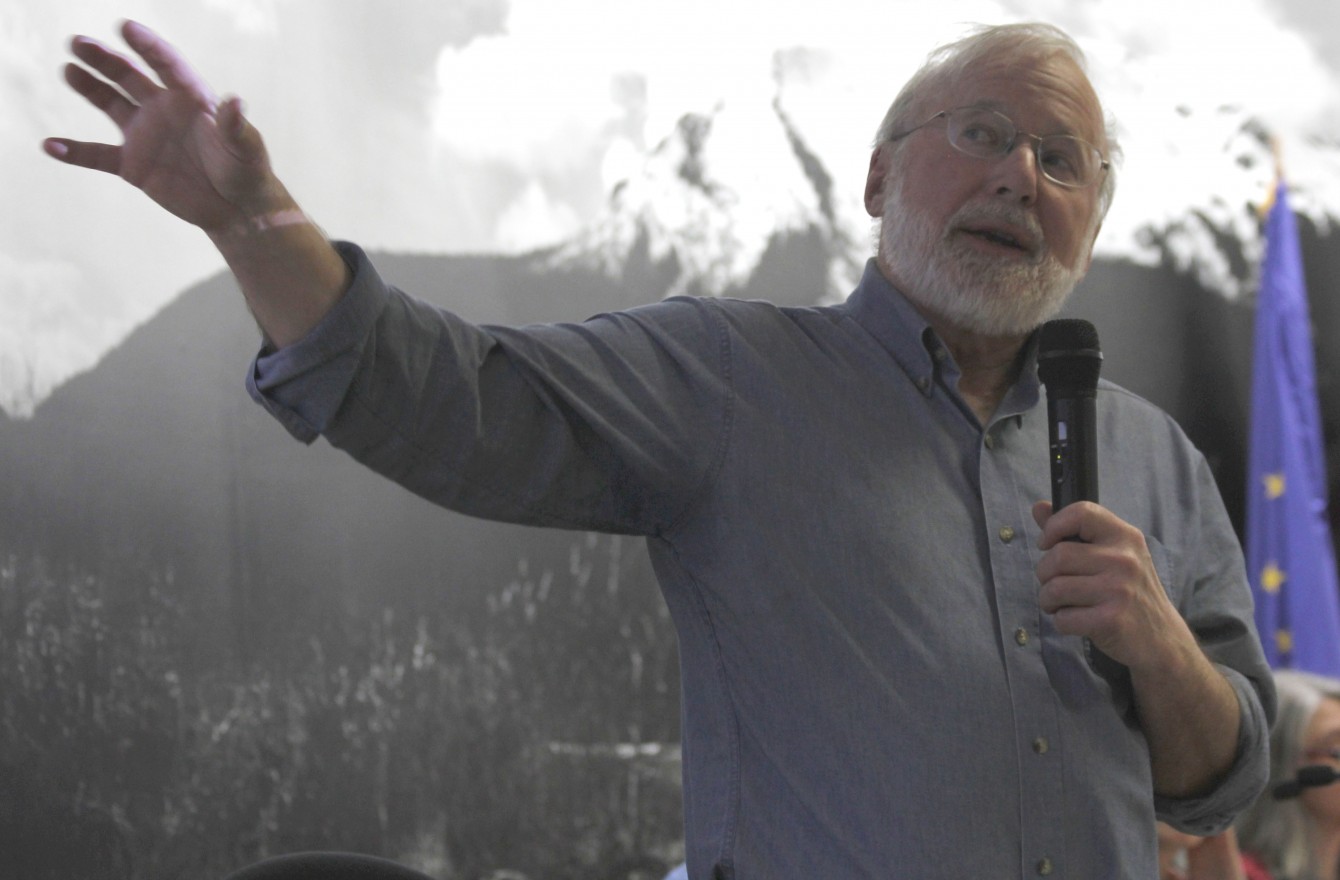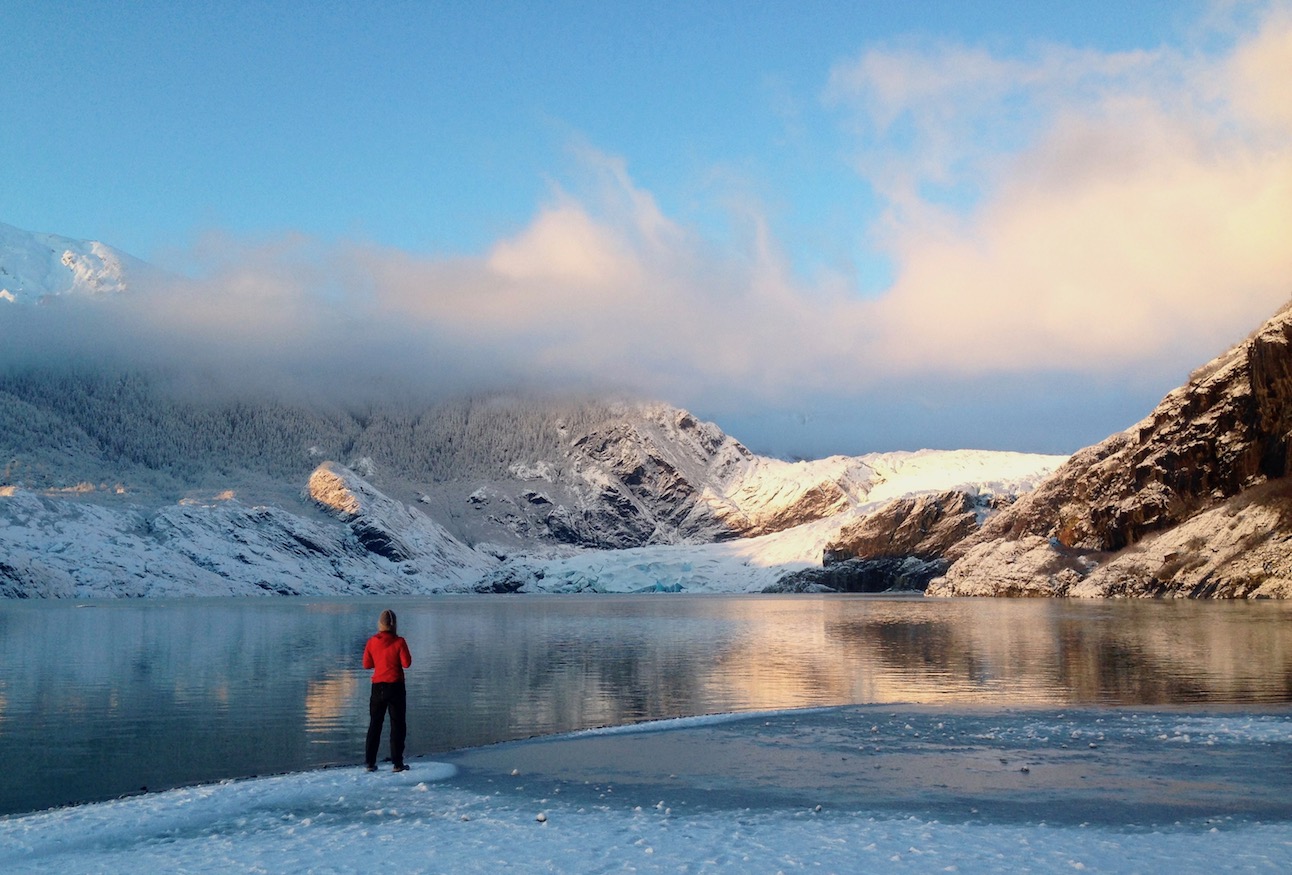
The Mendenhall Glacier, a Juneau landmark, is both a major tourist attraction and a reminder of rapid regional climate change. (Megan Behnke/Florida State University)

The Mendenhall Glacier, a Juneau landmark, is both a major tourist attraction and a reminder of rapid regional climate change. (Megan Behnke/Florida State University)
We never answered the phone when I was growing up; no tyrannical telephone was allowed to interrupt our days. Occasionally, as the answering machine recorded something interesting, someone would madly dash across the living room to answer, but usually messages merited returned calls or nothing. A byproduct of our habit was my inconvenient fear of phone calls. I hated cold-calling, or answering the phone blind.
My dad clearly felt the same way. He would get this resigned look when preparing to call someone, postponing as long as possible, and finally holding the phone pensively. In an ever changing world, I took my dad’s phone-phobia as a given.
Except now my dad makes a lot of phone calls. And he answers them, too.
He’s not a scientist, but understands evidence, and climate change. He’s a true Alaskan—a cultural geographer by training, but also a gardener, a sailor, and a woodsman. He knows and cares for the land on which he lives. And caring a lot about something can push someone to do scary things.
Now he is on the phone talking about heat pumps.
Not just heat pumps. He spends a lot of time on the landline (no smart phones for him yet) talking about electric vehicles, too, and committee meetings, fundraising, and our town’s potential to become a national leader on local sustainability.
My dad is one of three founders of Renewable Juneau, which advocates for climate sanity, economic vitality, and quality of life for Alaska’s capital city. Born in 2016, Renewable Juneau supports local, renewable energy, and disseminates practical information about sustainability in Juneau, providing workshops and brochures such as “Renewable Juneau’s guide to heat pumps in Juneau” and “Renewable Juneau’s brief guide to buying a used Nissan Leaf.” Such guides are welcomed, and EVs are booming; the number of EVs in Juneau more than doubled in 2017, to over 200. This gives my hometown, with around 30,000 residents, one of the nation’s highest per capita rates of EV ownership.
But Renewable Juneau is more than an EV advocate. It is serving as a catalyst for an ambitious local aim: 80% renewable energy in Juneau by 2045.
“Juneau can choose to take local climate action and improve our economy at the same time,” my dad explains. “We can use our abundant rainfall and hydroelectricity to shift away from fossil fuels for heating our homes and powering our cars.”

My dad’s organization believes that Juneau is poised to take national leadership on cutting fossil fuel use. Perched between the mountains and ice fields of coastal Southeast Alaska and the sea, the city is already powered by local, fish-friendly hydropower. “We’ve had 100% renewable electricity for a hundred years,” Renewable Juneau’s website proudly declares. But my father emphasizes the need for improvement: “Folks purchase fossil fuels for much of our town’s transportation and heating needs, which is why we have been advocating for the Renewable Energy Strategy.”
Juneau’s isolation, with no road access, makes the costs of bringing fuel into the city high—$140 million a year to import fossil fuels, according to the Strategy. So not only does the Strategy make sense environmentally, it also makes economic sense. Renewable Juneau has advocated for the Strategy by rallying local businesses to sign on as Clean Energy Supporters. The group’s original goal was “80 for 80”—80 businesses supporting an 80 percent renewable energy future. Shortly after calling for partners, they were at 105 businesses and counting. In a city Juneau’s size, that represents a significant portion of the local economy. Clean Energy Supporters span Juneau’s unique economy; commercial fishing vessels are listed alongside premier architecture and engineering firms, and law firms, medical centers and wilderness tour companies intermix with plumbers and bars. Despite their different niches, all acknowledge the importance of weaning Juneau from fossil fuels.
Even through I am now studying on the other side of the country, I stay abreast of the call for local government action back home. It would be hard not to—most phone conversations with my mother these days feature her slightly bemused observations (“your dad’s off to another meeting” or “he’s been talking on the phone all morning”), followed by an update on supportive businesses or recalcitrant assembly members. It seems that for every two steps forward there’s a icy slide backwards, but despite frustrating days and phone calls that go in unexpected directions, my dad keeps educating folks about heat pumps and EVs, and continues gathering support.

The momentum is working. In January, a key city committee approved the Strategy, moving it on to the full assembly. Despite earlier concerns from several members over possible economic impacts, committee recommendation was unanimous. Another step forward.
Juneau is a small city; reducing its fossil fuel use hardly makes a shift on a national graph of hydrocarbon consumption. “But as Alaska’s capital, and as host to a million cruise ship visitors annually, we have the potential to have a large impact nationally,” my dad emphasizes.
I take inspiration from the people in my hometown who have a vision of a fossil fuel free future, and who have the guts to work and make the phone calls and spread the conviction that will make it happen. These men and women know that focusing on the hydropower with which Southeast Alaska has been blessed is the economically healthy option, and they are not ashamed to dream that Juneau could be a national leader in and example for sustainable success.
My dad just called: “the Assembly adopted the Strategy tonight — it was unanimous!” He’s overjoyed. He knows that many trying days and phone calls await as our town makes the Strategy a reality and becomes an 80% renewable capital city, but this good fight is won. I heard the twinkle in his eyes even over the phone as he recounted the victory, and I am proud to be his daughter.
